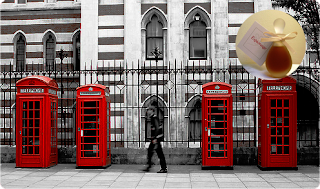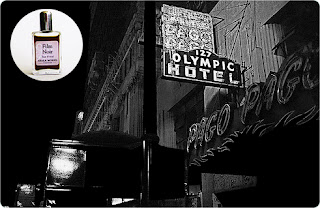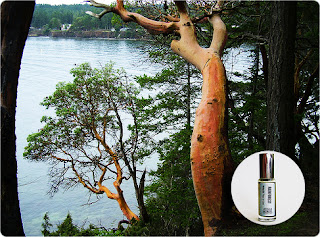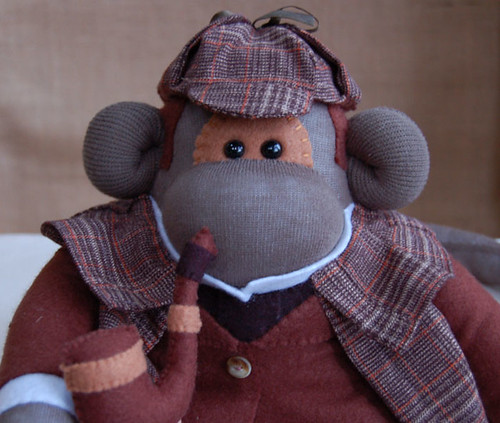Real-life investigators as well as fictional detectives often times use their sense of smell to solve murder mysteries. Police officers need very little skill to detect alcohol on a drunk driver's breath, and collect scent evidence from a crime scene which is as important as fingerprints - since each individual has a unique body odour - "By definition, scent is the 'bacterial, cellular, and vaporous debris enshrouding the individual' known collectively as 'raft', this debris consists primarily of dead or dying skin cells, which the body sheds at a rate of approximately 40,000 each minute. Air currents project the raft upward and away from the body, much like a plume. The debris becomes deposited in the environment in a conically shaped pattern known as the scent trail"...
Sherlock Holmes used his sense of smell on more than one occasion, being able to identify the 75 perfumes of his time (he surely will have harder time now!) and detect other odours in the crime scene, which helped him solve several murder mysteries. When losing his eyesight temporarily, Monk manages to solve the case in the episode “Mr. Monk Goes to the Firehouse”; and when there is a garbage strike, he can't concentrate on the case. Agata Christie "killed" more than one of her "victims" with cyanide, leaving a trail of bitter almonds and marzipan as a clue to the cause of death. And in Denise Hamilton's several Noir novels, there is a significance to the sense of smell; but particularly in her latest "Damage Control", where the central character is a perfumista and in which a perfume serves as a key clue.
"...anyone "with a nose for" crime should be able to sniff out culprits from their tweed, India ink, talcum powder, Italian leather shoes, and countless other scented paraphernalia. Not to mention the odors, radiant and nameless, which we decipher without even knowing it. The brain is a good stagehand. It gets on with its work while we're busy acting out our scenes. Though most people will swear they couldn't possibly do such a thing, studies show that both children and adults, just by smelling, are able to determine whether a piece of clothing was worn by a male or a female." (Diane Ackerman, A Natural History of the Sense).
Even in our mundane lives, we act as detectives using our noses to find out if our date is a smoker or not; if our kids have dipped into the chocolate chip cookie jar or bothered to brush their teeth; and amuse ourselves by guessing which soap or shampoo our friends use. Our sense of smell is keener and far more important to our ongoing gathering of information than most of us would ever care to admit...
What about you? Have you ever used your sense of smell to solve "crimes" around your house or to clue in on something that your friends, coworkers or family members have been plotting behind your back?
Share your stories by leaving a comments below, and enter to win a mini of Film Noir.

















